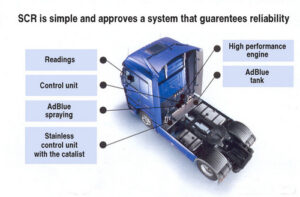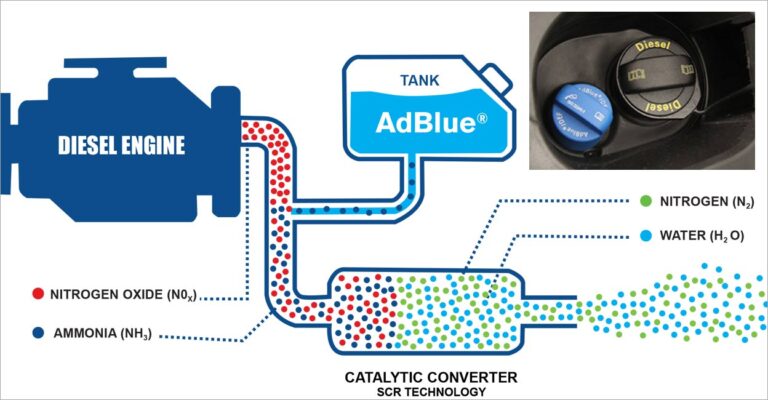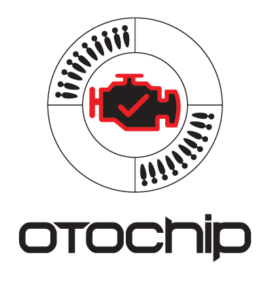What is suppression AdBlue?
AdBlue SRC EGR is a non-toxic urea solution used to chemically reduce NOx-emission from heavy-duty diesel powered vehicles. AdBlue is neither explosive nor harmful to the environment and is classified under the minimum-risk category of transportable fluids. Since AdBlue is corrosive, certain materials are required for its handling and storage.

What happens if you not do AdBlue®?
The manufacturer has studied the catalyst to accept fumes of different types with heavier elements. As a result if someone does not use AdBlue SRC EGR the engine needs higher mechanical energy in order for the fumes to pass another type of hives of the catalyst. This practically means:
- higher fuel consumption 5-7%, thus higher financial expense.
- quick damage of the catalyst because of blocked hives.
- loss on the “best function” and performance of the engine
- higher burden on the atmosphere.
- expensive fines in case of fume measurement.
AdBlue is Necessary
All major trucks and buses manufacturers in Europe ,midel east has models that require AdBlue. More specific AdBlue is stored in a separate tank and it is not mixed with diesel or other kind of fuel. Its use is made through a system which is called SCR Selective Catalytic Reduction .
253 million… This is the number of cars on the European roads today1. Quite impressive isn’t it? This really shows how important the car is for in our today’s life.
3% of these 253 million (i.e. 7.59 million) are new cars sold in 2015 and out of these, 49% were diesel cars.







AdBlue is Necessary
All major trucks and buses manufacturers in Europe ,midel east has models that require AdBlue. More specific AdBlue is stored in a separate tank and it is not mixed with diesel or other kind of fuel. Its use is made through a system which is called SCR Selective Catalytic Reduction .
253 million… This is the number of cars on the European roads today1. Quite impressive isn’t it? This really shows how important the car is for in our today’s life.
3% of these 253 million (i.e. 7.59 million) are new cars sold in 2015 and out of these, 49% were diesel cars.







Advantages of use AdBlue
The basic advantage of SCR technology is the reduction of of emissions of Oxides of Nitrogen NOx at 90% while at the same time it decreases the pollutants of Hydrocarbons HC and Monoxide of coil Coat 50-90% as well as PM at 30-50%.
Furthermore, Selective Reduction System (SCR) presents additional advantages .It requires minimum and low maintenance cost; it does not influence the rest vehicle’s parts and the service periods. Last but not least, the the SCR system is less sensitive in low quality diesel fuel than the other methods which are proposed in order to fulfill the euro 4 & 5 directives.
Also the manufacturers managed to increase the engines’ efficiency of the vehicles that use the SCR system in that way so they have around 5% fuel economy.
SCR AdBlue
However, what our politicians omit to say is that thanks to stronger and stronger EURO emission levels, the car industry made great effort to reduce them to almost nothing. Today, there are 2 main systems available on the market. The EGR and the SCR system. Recently a study conducted by the European Association of Transport & Environment explained that the SCR system is much more efficient than the EGR system.

How Does the SCR works?
To make it simple, let’s say that a number of reactions are taking place in the SCR catalyst. AdBlue is injected and the reaction of this liquid with the elements of the catalyst and the NOx leads to a reduction of 90% of the NOx at the end of the exhaust line. After this reaction, you will only find some nitrogen, water and carbonate dioxide (N2, H2O and some CO2).
To work at an optimum efficiency, the gas coming in the SCR catalyst must be at a certain temperature. This means that the exhaust must be warm enough! So the position of the catalyst in the exhaust line is not random…
Some car manufacturers, such as PSA Peugeot Citroën, decided to implement their SCR catalyst before the DOC catalyst. The reason was that this position is ideal to reduce the heating time of the SCR catalyst.



